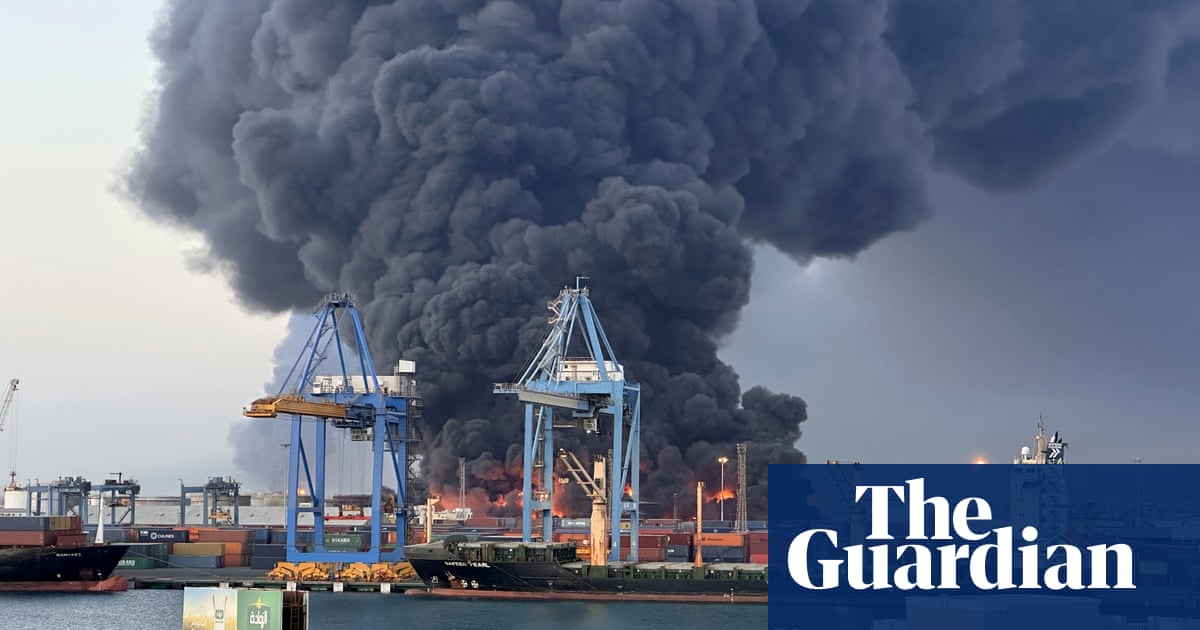Drones struck the airport and targeted an army base in PortSudanon Tuesday, officials said, the third straight day the seat of power of the government, which is aligned with the Sudanese army, has come under attack.
The country’s main fuel depot was hit on Monday, causing a massive blaze just south of the eastern city that had until Sunday been considered a safe haven for hundreds of thousands of displaced people fleeing a two-year war.
An Agence France-Presse correspondent reported loud explosions at dawn on Tuesday and plumes of smoke over the coastal city, one coming from the direction of the port and another from a fuel depot just south.
One drone struck “the civilian section of the Port Sudan airport”, an airport official told AFP, two days after the facility’s military base was first attacked in drone strikes the army blamed on the paramilitary Rapid Support Forces (RSF).
All flights were grounded at the war-torn country’s main international port of entry, the source added.
Another drone targeted the main army base in the city centre, an army source said, while witnesses reported a nearby hotel was hit.
Both sites are close to the residence of Sudan’s army chief, Abdel Fattah al-Burhan, who has been at war with his former deputy Mohamed Hamdan Dagalo, the commander of the RSF, since April 2023.
A third drone hit a fuel depot near the southern port in the densely populated city centre, where the UN, aid agencies and hundreds of thousands of displaced people have relocated from Khartoum.
Witnesses in the city’s north reported anti-aircraft fire from a military base.
The RSF has increasingly relied on drones since losing territory including nearly all of Khartoum in March, attacking deep into army-held territory.
Explosions were heard early on Tuesday morning across Port Sudan, where the UN secretary general, António Guterres, said on Monday reports of paramilitary attacks were a “worrying development threatening the protection of civilians and humanitarian operations”.
Nearly all humanitarian aid into Sudan, where famine has already been declared andnearly 25 million people are suffering dire food insecurity, arrives in Port Sudan.
At the airport, where Sudanese airlines had resumed flights after Sunday’s strike, “fires broke out in multiple buildings” following the explosion, a traveller told AFP. The army source said the strike had also “targeted fuel depots at the airport”.
The RSF has in recent weeks attacked civilian infrastructure across the army-controlled north-east, causing widespread blackouts for millions of people.
Since it began, the war has killed tens of thousands of people, uprooted 13 million and created the world’s largest hunger and displacement crises. It has effectively split the country in two, with the army controlling the centre, north and east while the RSF holds nearly all of the vast region of Darfur and, with its allies, parts of the south.
According to experts, the RSF’s increased reliance on drones since its loss of Khartoum has highlighted its reach and hindered the army’s supply line. The RSF has used both makeshift and highly advanced drones, which the army accuses the United Arab Emirates of supplying.
The International Court of Justice on Mondaythrew out a case brought by Sudan against the UAE, accusing it of complicity in genocide by supporting the RSF.Sudan’s foreign ministry said on Tuesday it “respected” the ruling, which came on the basis of the ICJ’s lack of jurisdiction due to the UAE’s 2005 “reservation” on the UN genocide convention.
